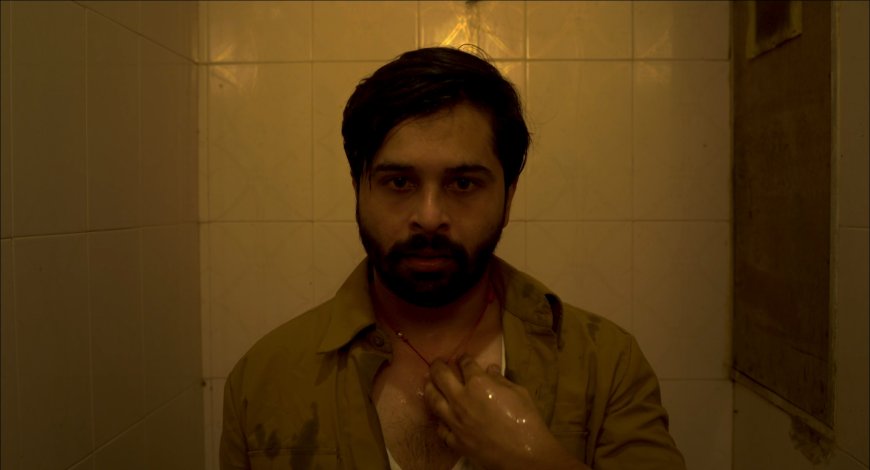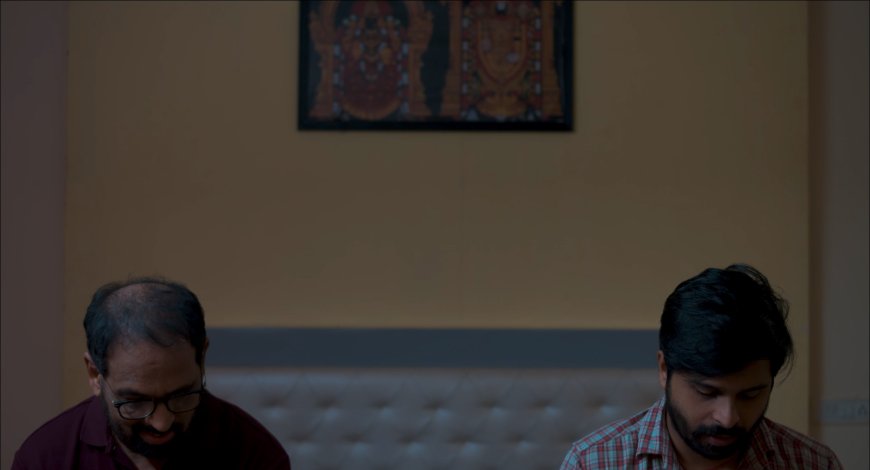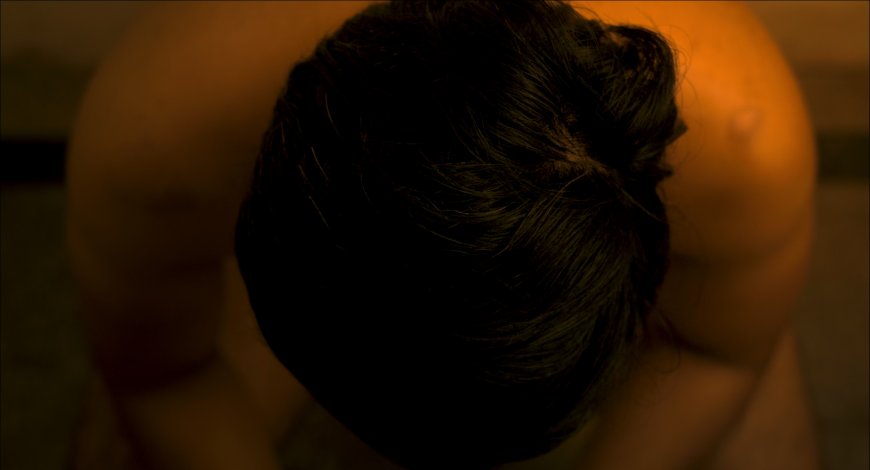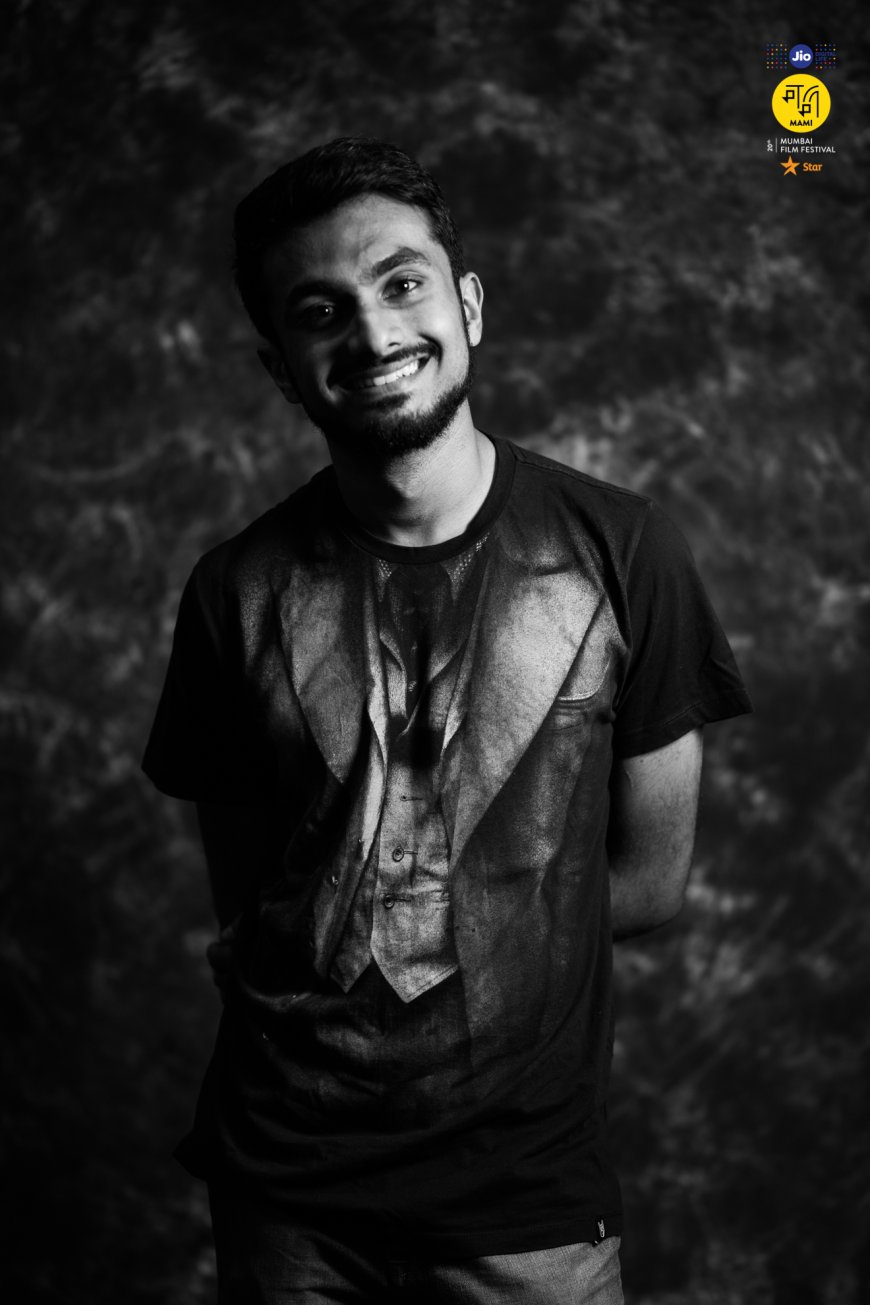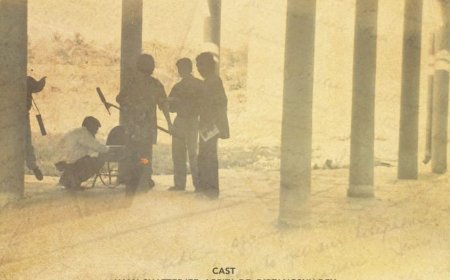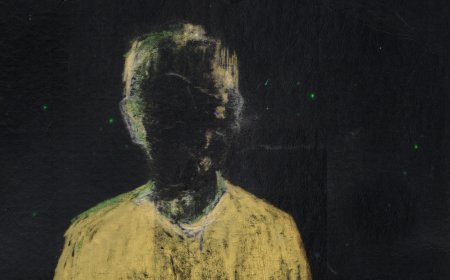An interview with Tuhin Basu on his short film Impasse (2023)
Dipankar Sarkar provides an interview with Tuhin Basu on his short film Impasse (2023)
Tuhin Basu's Impasse (2023) is a tightly focused observation of a Tamil auto-rickshaw driver whose casual hookups with men cause tension in his marriage. Basu approaches the subject with a self-assured style that avoids being overtly sentimental or cynical. He addresses the complex entanglements of love and sex with a critical eye. He does not shy away from unflinchingly exploring the enduring mystery of sexual attraction and its consequences.
Impasse was screened at the New York Indian Film Festival 2024.
In this interview, Basu spoke about his inspiration, research, and the subtle details that went behind in the making.
Tell us about your background and how you got interested in filmmaking.
I grew up playing female characters in an all-boys boarding school in Rajasthan. Theatre, storytelling and music were my quickest means of expression, and the markers of my identity in that cocoon of a world. From those experiences, I knew that I wanted to become a storyteller in some form. Watching intense drama films has been another go-to for catharsis right from when I was, say, 12 years old. When I attended college at Delhi University, I got involved in writing and directing stage and street plays. I had wanted to explore filmmaking but did not have access to it then. So, after college, enrolling in a filmmaking program to get introduced to the world of filmmaking seemed like the most logical step.
Did Whistling Woods International impact your worldview and perception of cinema?
Yes, absolutely. Being in an environment filled with sincere and like-minded peers, along with being mentored by highly experienced faculty members in their respective disciplines, is inspiring, to say the least. Navigating the film world can be a daunting experience, especially if you come from a background far removed from this field. It’s hard to know where to begin, both in terms of learning the craft and approaching your career. Attending film school can help accelerate these processes.
What inspired you to make a film about a closeted gay rickshaw driver in Mumbai?
I believe India is a land where everyone seems to lead dual lives—one heavily influenced by societal and familial expectations and another, perhaps a secret one, where they try to live for themselves. These dual lives take different shapes and forms, depending on each person's unique story among the multitude of narratives within a square kilometre of, say, Mumbai. When the writer of the film, Nipun Angrish, shared the idea with me, I was immediately drawn to exploring the protagonist's dual life. Something about feeling oddly at home as a migrant in a 'foreign' world also resonated with me—it was the only way he could be his authentic self.
What sort of research did you do to bring authenticity to your story?
Interacting one-on-one with real people remained the primary mode of research for the film. Within this paradigm, we kept multiple approaches. One is to explore Ashok’s authentic sexual expression and the limited access available to him. Another was on how the forced repression might impact one’s psyche and what one might do to cope with it. Quite another was an exploration of the'secret’ world of closeted people on queer dating apps and their personal struggles, including a class-based bias or discrimination present within the queer community. All of this required stepping out to do a field study, which, if I’m being honest, was done by many people on board, including the writer and the lead actor, in our own ways.
We observe Ashok chatting in a rambling manner about his experiences with female passengers with his driver friends. Are these conversations a way to establish a sense of belonging with his peers and to alleviate his feelings of loneliness?
That’s correct. One more point, if I might add, is that a lot of men who come from economically challenged backgrounds face this bias. They are unfortunately seen as predatory. So he uses this bias as an unconscious form of overcompensating for his ‘lack,’ for he has not come to terms with his sexuality and tends to look down upon it himself.
Moreover, Ashok does not want to leave Mumbai and return to his village. Is it due to his steady income or the multiple options for finding male partners in the city?
The film hints that his partner and family believe that he is financially equipped enough to come back to his village, take over from his parents the care of his daughter, and perhaps even have a second child. This is a quietly menacing prospect that would mean saying goodbye to his self-expression and getting back to his former life, where he could never think of exploring that side of him.
In some of the scenes, you have used lots of head space while framing the protagonist. What was the reason behind the creative choice?
The idea was to keep Ashok centrally framed whenever he gets to express his true self and have him otherwise be a small figure somewhere on the sides of the frame to suggest the oppression he quietly experiences in that world—that he feels unseen and oppressed in most of the spaces he inhabits in the city.
Why did you end the film with a high-angle shot of a bare-bodied Ashok?
We felt that the image leaves us with an experience of his most vulnerable self—the world around him caving in, forcing him to push his true sexual identity far into the deep recesses of his mind. That said, he knows it is impossible to erase this part of him, and so he sits naked in a bathroom after yet another hookup in that boxed up frame, suffocated by his life.
Impasse has participated in numerous film festivals. How important is it to you as a budding filmmaker?
I think film festivals are excellent avenues for budding filmmakers to network and show their faces. They have the potential to find producers for your next projects and also provide opportunities to meet established filmmakers and pick their brains on how to navigate the industry, maybe even assist them in any of their upcoming projects. Such avenues also help us expand our limited network of fellow collaborators from other disciplines of filmmaking, like cinematography, editing, etc., which is of great help since filmmaking is a highly collaborative profession.
What are you currently busy with?
I’ve been freelancing as an assistant writer and director’s assistant to make ends meet while preparing to make another short film. I also have a feature screenplay that was placed as a finalist at the US based WeScreenplay Diverse Voices Lab 2023 and a second rounder at the Sundance Development Track 2023 and Austin Film Festival 2022. With that script, I’m now looking for producers, financiers, and other collaborators willing to come on board and work towards making an emotionally riveting feature film!
*****
What's Your Reaction?





















































